How Decentralized Finance is Transforming the Financial Landscape
Blur: NFT | Blur: NFT login | Blur: NFT connect | WalletConnect | Traders | What Is Blur Crypto

Blur: NFT | Blur: NFT login | Blur: NFT connect | WalletConnect | Traders | What Is Blur Crypto
In recent years, decentralized finance (DeFi) has emerged as a transformative force in the world of finance. Traditional financial institutions are now facing a new wave of competition as decentralized platforms disrupt long-established systems and revolutionize the way we interact with money. With its decentralized nature and innovative use of blockchain technology, DeFi has the potential to democratize access to financial services and create a more inclusive global economy.
Unlike traditional finance, which relies on centralized intermediaries such as banks and brokers, DeFi operates on a peer-to-peer basis. It eliminates the need for intermediaries by utilizing smart contracts, which are self-executing agreements that automatically validate and enforce transactions. This allows for more efficient and transparent financial services, as well as greater security and control over one's personal assets.
One of the key advantages of decentralized finance is its ability to provide financial services to the unbanked and underbanked populations around the world. With traditional banking systems often inaccessible or unaffordable for many individuals, DeFi offers a viable alternative. Through the use of cryptocurrencies and blockchain technology, individuals can now access a wide range of financial services, such as loans, savings accounts, and investments, without the need for a traditional bank account.
Furthermore, decentralized finance has the potential to disrupt the traditional lending industry. Traditional lenders often rely on a borrower's credit score and collateral to determine loan eligibility. This leaves many individuals without access to credit, particularly those in developing countries or with limited financial history. In contrast, DeFi platforms can utilize alternative methods for determining creditworthiness, such as analyzing a borrower's transaction history on the blockchain. This opens up opportunities for individuals who were previously excluded from the traditional lending system.
The impact of decentralized finance on the financial landscape cannot be underestimated. As more individuals and institutions embrace this technology, we can expect to see a shift towards a more democratic and inclusive financial system. However, it is important to recognize that there are still challenges to overcome, such as scalability and regulatory frameworks. Nevertheless, the potential for decentralized finance to reshape the financial landscape is undeniable, and it is an exciting time to be a part of this transformative movement.
The Rise of Decentralized Finance
Decentralized finance, or DeFi, has emerged as a game-changing force in the financial landscape. Building upon blockchain technology and smart contracts, DeFi aims to create a more inclusive, efficient, and transparent financial ecosystem.
At its core, DeFi enables individuals to have direct control over their financial assets, without the need for intermediaries such as banks or other financial institutions. This is made possible through the use of decentralized applications (DApps), which are built on blockchains like Ethereum.
The rise of DeFi has been driven by several factors. Firstly, it addresses some of the inherent inefficiencies and limitations of traditional financial systems. By leveraging blockchain technology, DeFi enables faster and cheaper transactions, eliminates the need for intermediaries, and provides greater accessibility to financial services.
Furthermore, the decentralized nature of DeFi presents new opportunities for financial innovation. Developers can create new financial products and services, such as decentralized lending platforms, decentralized exchanges, and prediction markets. These innovations have the potential to disrupt traditional financial markets and democratize access to financial services.
Another key aspect of DeFi is its focus on transparency. Blockchains provide a transparent and immutable record of all transactions, making it easier to verify the integrity of financial operations. This transparency helps to mitigate fraud and increases trust in the system.
However, the rise of DeFi also brings challenges and risks. Smart contracts, while powerful, are still in their early stages of development and can be prone to vulnerabilities. In addition, regulatory frameworks and oversight are still being developed to address the unique characteristics of DeFi.
Despite these challenges, the potential impact of DeFi on the financial landscape is significant. It has the potential to democratize finance, empower individuals, and reshape traditional financial systems. As the DeFi ecosystem continues to grow and mature, it will be interesting to see how it transforms the way we think about and interact with money.
The Evolution of Traditional Banking
Traditional banking has a long history that can be traced back centuries. From its early beginnings as a means of storing and exchanging assets, banking has evolved to become a cornerstone of the modern financial landscape.
Over the years, traditional banks have played a vital role in providing essential financial services to individuals and businesses. They have acted as intermediaries, facilitating loans, accepting deposits, and managing monetary transactions.
However, as technology has advanced, so too has the banking industry. The rise of digitalization and the internet has transformed the way people manage their finances, leading to the emergence of online and mobile banking.
Online Banking
With the advent of the internet, traditional banks expanded their reach beyond physical branches. Online banking allowed customers to access and manage their accounts remotely, providing convenience and flexibility. This development marked the beginning of a shift towards a more digital and interconnected financial world.
Online banking offered several advantages, such as 24/7 availability, faster transaction processing, and easier access to financial information. Customers could check balances, transfer funds, pay bills, and even apply for loans from the comfort of their own homes.
Mobile Banking
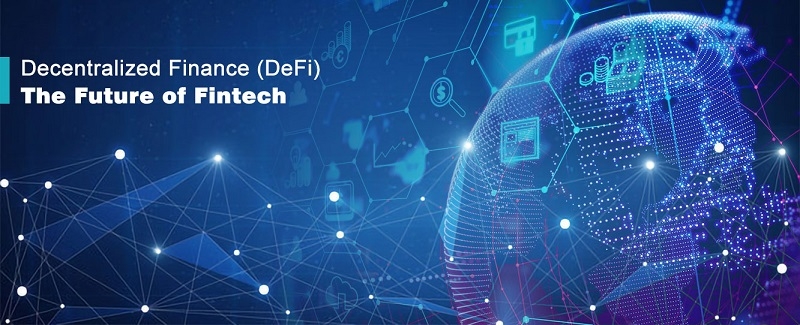
As smartphones became increasingly prevalent, banks adapted to the changing landscape by introducing mobile banking applications. This innovation brought banking services directly into the hands of customers, providing a seamless and intuitive user experience.
Mobile banking apps expanded on the capabilities of online banking, allowing customers to perform a wide range of financial tasks on the go. Users could now deposit checks, track their expenses, set up alerts, and even make payments using their smartphones.
The Emergence of Decentralized Finance
While traditional banking has made significant strides in embracing technology, the emergence of decentralized finance (DeFi) represents a game-changing development that challenges the very foundations of the traditional banking system.
DeFi leverages blockchain technology to create an open, transparent, and permissionless financial ecosystem. It eliminates the need for intermediaries and allows users to access financial services directly, without relying on traditional banks. Through DeFi platforms, users can lend, borrow, invest, and trade assets in a decentralized manner, with no central authority controlling the process.
Decentralized finance has the potential to revolutionize the financial landscape, providing greater accessibility, transparency, and inclusivity. It empowers individuals to take control of their finances and participate in a global financial system, regardless of their geographic location or socio-economic status.
In conclusion, the evolution of traditional banking has been driven by technological advancements. From the introduction of online banking to the rise of mobile apps, banks have continuously adapted to meet the changing needs and expectations of customers. The emergence of decentralized finance adds another dimension to this evolution, opening up new possibilities and disrupting traditional banking practices. The future of finance is undoubtedly undergoing a significant transformation, and it will be fascinating to see how traditional banking institutions adapt and embrace this new paradigm.
The Advantages of Decentralized Finance
Decentralized finance (DeFi) is revolutionizing the financial landscape by offering numerous advantages over traditional centralized systems. These advantages include:
1. Security and Privacy
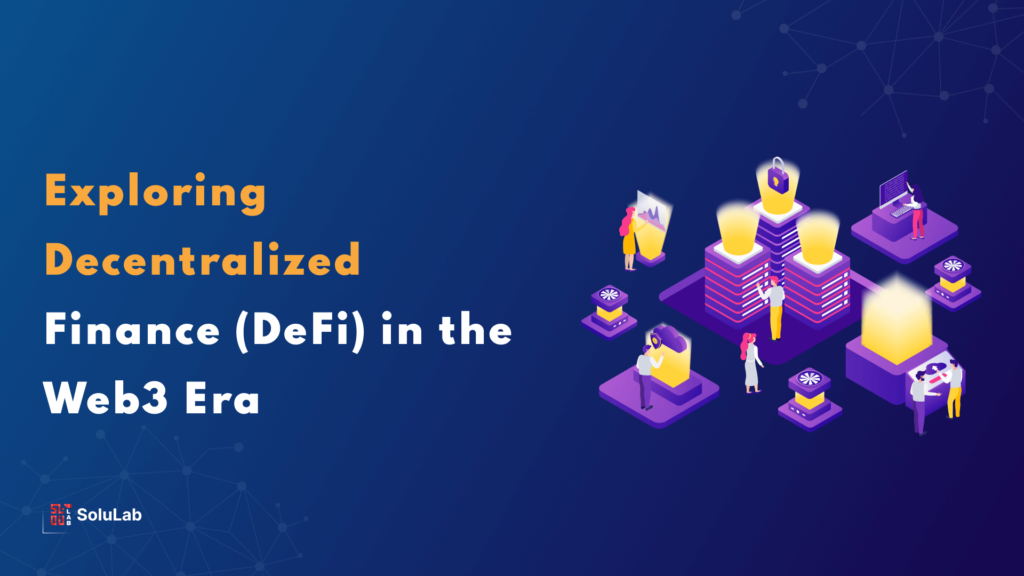
One of the key advantages of DeFi is its enhanced security and privacy features. In decentralized finance, transactions are conducted on blockchain networks, which are known for their robust security protocols. These protocols make it extremely difficult for hackers to compromise user funds or manipulate the system.
Additionally, DeFi provides users with greater privacy as transactions can be conducted pseudonymously. This means that users can enjoy the benefits of financial services without having to disclose their personal information or rely on third-party intermediaries.
2. Accessibility and Inclusion
Unlike traditional financial systems, which often have stringent requirements and exclusions, DeFi is designed to be accessible to everyone. Anyone with an internet connection can participate in decentralized finance at any time, regardless of their location or financial standing.
This inclusivity opens up opportunities for individuals who are unbanked or underbanked, providing them with access to essential financial services such as loans, savings, and investments. DeFi eliminates the need for intermediaries, lowering fees and reducing barriers to entry.
3. Transparency and Trust
Decentralized finance fosters trust and transparency by leveraging blockchain technology. All transactions and smart contracts are recorded on a public ledger, providing full transparency to users. This transparency helps prevent fraud and ensures that all transactions can be verified and audited.
Moreover, trust is built into decentralized finance systems through the use of smart contracts. These self-executing agreements automatically enforce the terms and conditions set by the parties involved, eliminating the need for intermediaries and minimizing the risk of human error or manipulation.
Enhanced security and privacy
Accessibility and inclusion for all
Transparency and trust through blockchain
Disintermediation in Financial Transactions
In traditional financial systems, intermediaries such as banks or brokerage firms play a crucial role in facilitating transactions between parties. However, decentralized finance (DeFi) has introduced disintermediation, which is transforming the financial landscape.
Disintermediation refers to the elimination of intermediaries, allowing direct peer-to-peer transactions. By leveraging blockchain technology and smart contracts, DeFi protocols enable individuals to interact and transact without relying on centralized intermediaries.
This disintermediation has several implications for financial transactions:
Elimination of Middlemen: With DeFi, participants can transact directly with each other, removing the need for intermediaries. This reduces costs associated with traditional financial systems and allows for faster and more efficient transactions.
Increased Access: Disintermediation enables anyone with an internet connection to participate in financial transactions, regardless of geographical location, financial status, or credit history. This promotes financial inclusion and opens up new opportunities for individuals who were previously underserved by traditional financial systems.
Transparency and Trust: Blockchain technology provides a transparent and immutable ledger of all transactions, enhancing trust and reducing the need for third-party verification. Participants can verify transactions themselves, eliminating the need to rely solely on intermediaries for trust.
Safety and Security: DeFi protocols leverage cryptographic security measures to protect transactions and user funds. By removing centralized points of failure, such as banks or exchanges, DeFi offers enhanced security against hacking or system failures.
Overall, disintermediation in financial transactions through decentralized finance brings forth a more inclusive, efficient, and transparent financial ecosystem. By embracing these disruptive technologies, individuals can explore the characteristics and advantages of platforms such as Blur.io that empower them to take control of their financial activities.
Increased Accessibility through Blockchain Technology
Blockchain technology has revolutionized the financial landscape by introducing decentralized finance (DeFi), a concept that has significantly increased accessibility for individuals around the world. Traditional financial systems often exclude large portions of the population, particularly in developing countries, due to various barriers such as high transaction fees, limited access to banking services, and stringent requirements for opening accounts. However, the decentralized nature of blockchain technology has paved the way for a more inclusive financial ecosystem.
Efficient and Low-Cost Transactions
One of the key benefits of blockchain technology is its ability to facilitate fast and low-cost transactions. Traditional financial systems often involve intermediaries such as banks, which not only increase the cost of transactions but also introduce delays. In contrast, blockchain-based transactions can be executed directly between parties, eliminating the need for intermediaries. This not only reduces costs but also allows for near-instantaneous transactions, making financial services more accessible to individuals with limited resources.
The reduced transaction costs offered by blockchain technology are particularly beneficial for individuals in developing countries. Many people in these regions rely on remittances from family members working abroad, which often come with high transaction fees. By leveraging blockchain technology, individuals can send and receive money at a fraction of the cost, enabling them to keep more of their hard-earned income.
Global Accessibility and Financial Inclusion
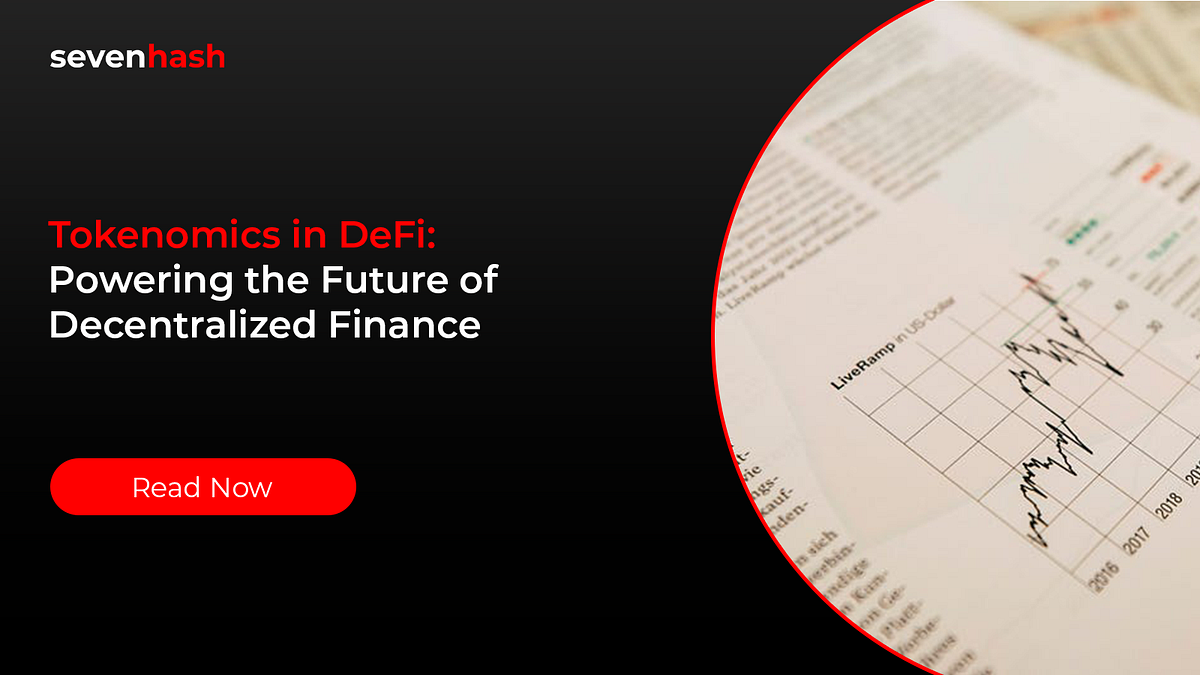
Blockchain technology also enables global accessibility to financial services, regardless of geographical location. In traditional financial systems, opening a bank account often requires physical presence, limiting the access of individuals living in remote areas. However, with blockchain technology, individuals can access various financial services through digital wallets, eliminating the need for physical infrastructure.
Moreover, blockchain-based financial services are not limited by national borders, allowing individuals to participate in the global financial ecosystem. This opens up opportunities for investment, lending, and borrowing on a global scale, regardless of one's location or local economic conditions. By enabling financial inclusion on a global level, blockchain technology has the potential to empower individuals and communities that have previously been excluded from the traditional financial system.
In conclusion, blockchain technology has significantly increased accessibility by revolutionizing the financial landscape through decentralized finance. The efficient and low-cost transactions offered by blockchain technology, coupled with its global accessibility, have the potential to empower individuals and communities around the world, particularly in developing countries. As blockchain technology continues to advance and evolve, its impact on financial inclusion is expected to grow, unlocking new opportunities for individuals to participate in the global economy.
Eliminating the Need for Middlemen
In the traditional financial system, middlemen such as banks, brokers, and payment processors play a crucial role in facilitating transactions and providing financial services. However, decentralized finance (DeFi) has emerged as a game changer by eliminating the need for these intermediaries.
With decentralized finance, blockchain technology enables peer-to-peer transactions without the involvement of intermediaries. This disintermediation has several advantages:
1. Enhanced Security and Trust

By eliminating the need for middlemen, decentralized finance reduces the risk of fraud and corruption. Smart contract technology ensures that transactions are executed automatically based on predefined rules, eliminating the possibility of human error or manipulation.
Additionally, blockchain's transparent nature allows participants to verify and track transactions, enhancing trust and accountability within the financial system.
2. Lower Costs and Increased Efficiency
Without middlemen, decentralized finance significantly reduces transaction costs. Traditional financial institutions often charge fees for their services, which can be substantial, especially for cross-border transactions.
DeFi eliminates these fees, allowing users to transact directly with each other. This not only reduces costs but also improves efficiency by eliminating the need for multiple intermediaries and the associated delays.
Furthermore, decentralized finance operates 24/7, unlike traditional financial systems that have limited operating hours.
In conclusion, decentralized finance is revolutionizing the financial landscape by eliminating the need for middlemen. It offers enhanced security, lower costs, and increased efficiency, making financial services more accessible and inclusive.
To learn more about the benefits and features of decentralized finance, you can explore the Blur.io.
Decentralized Lending and Borrowing
Decentralized lending and borrowing have emerged as one of the most innovative and game-changing features in the world of decentralized finance (DeFi). By removing intermediaries and creating peer-to-peer lending and borrowing platforms, decentralized finance has unlocked a new level of financial freedom and accessibility for individuals around the globe.
With decentralized lending platforms, anyone can become a lender or a borrower without the need for a traditional financial institution. This creates opportunities for individuals who may not have had access to loans or investment options before.
One of the most notable advantages of decentralized lending and borrowing is the ability to earn passive income through lending. By providing liquidity to the lending pool, lenders can earn interest on their funds. This is particularly attractive for individuals looking for alternative investment strategies or those seeking to diversify their portfolios.
On the other hand, borrowers can benefit from decentralized lending platforms by accessing loans without the need for collateral or a credit score. The lending process is typically more efficient and transparent, allowing borrowers to quickly obtain the funds they need.
1. Direct peer-to-peer lending and borrowing without intermediaries.
2. Access to lending and borrowing opportunities for individuals who may not have had access through traditional financial institutions.
3. Passive income generation for lenders through interest earning opportunities.
4. Fast and efficient borrowing process without the need for collateral or credit score.
5. Transparent and secure lending and borrowing transactions through blockchain technology.
Decentralized Lending Platforms
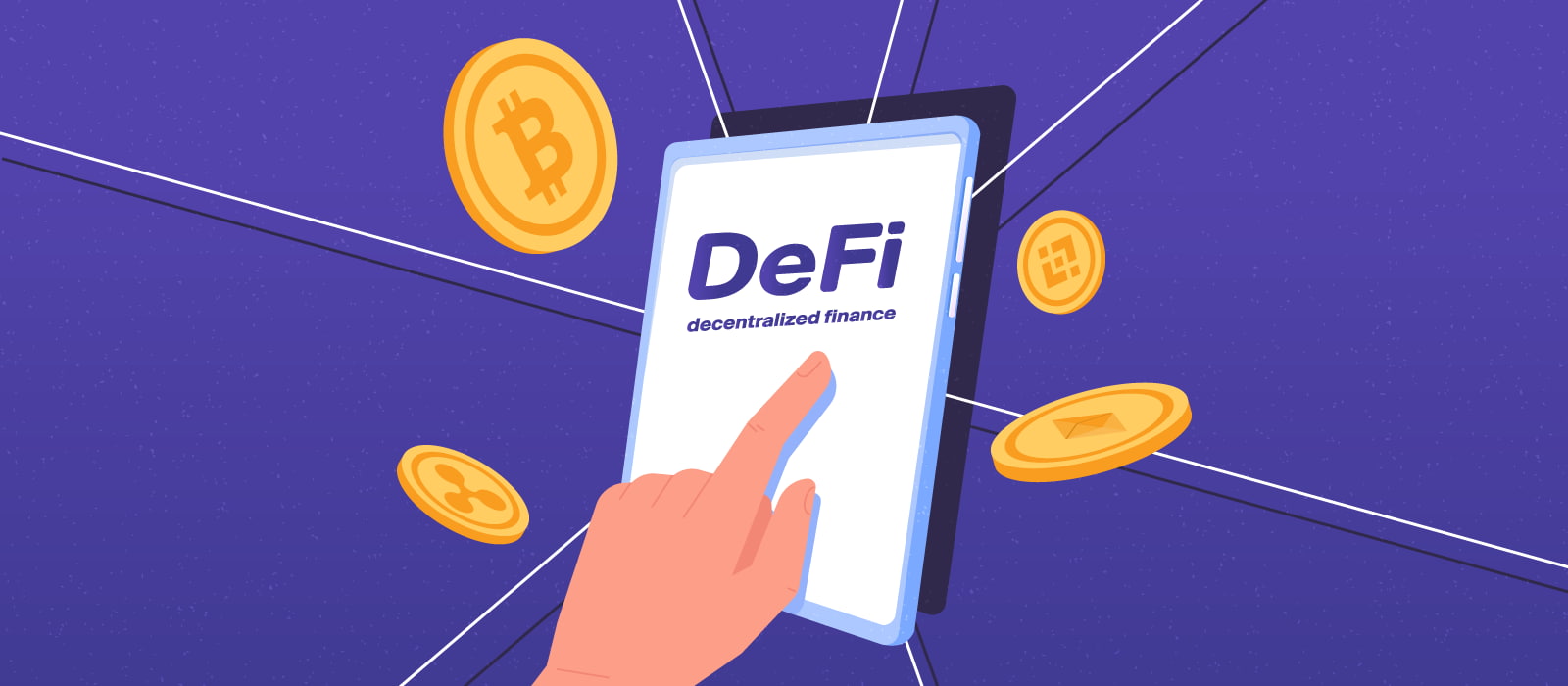
Several decentralized lending platforms have gained popularity in the DeFi space. These platforms operate on blockchain networks and enable users to lend and borrow various digital assets.
One such platform is Blur.io, a decentralized lending and borrowing platform that offers a wide range of lending options. Blur.io combines blockchain technology with smart contracts to facilitate trustless lending and borrowing transactions. Borrowers can quickly obtain loans by locking their digital assets as collateral, while lenders can earn interest by providing liquidity to the lending pool.
Conclusion
Decentralized lending and borrowing have revolutionized the financial landscape by providing inclusive and accessible solutions to individuals worldwide. With the rise of DeFi platforms like Blur.io, individuals can now enjoy the benefits of peer-to-peer lending and borrowing, earning passive income or accessing loans without the need for traditional financial institutions. The future of finance is decentralized, and the possibilities for the global financial landscape are endless.
Tokenization of Assets
The tokenization of assets is a process that converts tangible and intangible assets into digital tokens on a blockchain. This concept has gained significant attention due to its potential to revolutionize the traditional financial landscape. Tokenization allows for the fractional ownership of assets, making them more accessible to a broader range of investors.
One of the key advantages of asset tokenization is increased liquidity. By representing assets as tokens on a blockchain, they can be easily traded and exchanged, removing the need for intermediaries and reducing transaction costs. This opens up new opportunities for investors, as they can easily buy and sell fractional shares of high-value assets such as real estate or fine art.
Additionally, asset tokenization enhances transparency and security. Blockchain technology ensures that each token's ownership is recorded and verified, increasing trust and reducing the risk of fraud. This provides investors with greater confidence when participating in asset-backed token offerings or investing in tokenized assets.
Furthermore, tokenization has the potential to unlock new sources of liquidity and create new investment opportunities. Through fractional ownership, assets that were previously illiquid can now be easily divided into smaller units and offered to a wider investor base. This allows individuals to invest in assets that were once inaccessible, such as venture capital funds or private equity.
Challenges and Considerations
Despite its numerous benefits, asset tokenization does come with challenges and considerations. One of these challenges is regulatory compliance. Different jurisdictions have varying regulations pertaining to securities, which can impact the tokenization process. It is crucial for issuers and investors to navigate these regulations and ensure compliance to avoid legal repercussions.
Another consideration is the valuation of tokenized assets. Determining the value of an asset can be complex, and this complexity can be amplified when it comes to tokenized assets. Accurate valuation is essential for pricing tokens and determining the corresponding ownership rights and rewards.
The Future of Asset Tokenization
The tokenization of assets has the potential to disrupt traditional financial markets and democratize investment opportunities. As technology continues to advance and regulatory frameworks evolve, we can expect to see increased adoption of asset tokenization across various industries. This could pave the way for a more inclusive financial system, where anyone can access and invest in a wide range of assets.
The Power of Smart Contracts

One of the key elements of decentralized finance is the use of smart contracts. These self-executing agreements with the terms of the agreement directly written into code have revolutionized the way financial transactions are conducted.
Smart contracts are built on blockchain technology, which allows for transparency, immutability, and security. These contracts eliminate the need for intermediaries in financial transactions, reducing costs and risks associated with trust issues.
With smart contracts, parties can automate complex transactions without relying on a central authority. The terms and conditions of the contract are predefined and cannot be altered, ensuring that all parties are bound by the same set of rules. This not only speeds up the transaction process but also eliminates the possibility of fraud or manipulation.
Smart contracts have numerous applications across the financial landscape. They can be used for lending and borrowing, decentralized exchanges, insurance, asset management, and much more. For example, in the lending space, smart contracts can automatically execute loan repayments and distribute funds once the conditions are met, without the need for a middleman.
The Benefits of Smart Contracts:
Efficiency: Smart contracts automate processes, reducing the need for manual intervention and streamlining transactions.
Transparency: All actions on the blockchain are visible and verifiable by all parties, ensuring trust and fairness.
Security: Smart contracts are stored on the blockchain, making them resistant to tampering and unauthorized access.
Cost savings: By eliminating intermediaries, smart contracts reduce transaction costs.
Accessibility: Smart contracts can be accessed by anyone with an internet connection, making financial services more inclusive.
The Future of Smart Contracts:
The power of smart contracts is still being explored, with new use cases emerging every day. As more industries and individuals recognize the benefits of decentralized finance, the adoption of smart contracts is expected to increase.
However, challenges such as scalability, interoperability, and legal considerations need to be addressed for smart contracts to reach their full potential. Solutions are being developed to overcome these hurdles, including layer two scaling solutions and cross-chain interoperability protocols.
Overall, smart contracts have the potential to revolutionize the financial landscape by providing secure, efficient, and transparent financial services to individuals and businesses around the world.
Enhancing Security and Privacy
Decentralized finance (DeFi) has the potential to revolutionize the financial landscape by enhancing security and privacy. Traditional financial systems rely on centralized institutions to store and manage users' financial information, making them vulnerable to hacks, data breaches, and privacy violations. However, with DeFi, security and privacy are prioritized through the use of blockchain technology and smart contracts.
Blockchain technology, the underlying technology of DeFi, provides a decentralized and tamper-proof ledger of transactions. This means that once a transaction is recorded on the blockchain, it can no longer be altered or tampered with. This provides a high level of security as it eliminates the need to trust a central authority to manage and secure financial data.
In addition to the security benefits of blockchain technology, DeFi platforms also utilize smart contracts to enhance privacy. Smart contracts are self-executing contracts with the terms of the agreement directly written into the code. These contracts enable secure and private transactions without the need for intermediaries. They can be used to set up complex financial agreements and automatically execute them once certain conditions are met. This eliminates the need to disclose personal information to third parties, further enhancing privacy.
Beyond the use of blockchain technology and smart contracts, DeFi platforms also prioritize user-controlled privacy. Users have control over their own financial information and can choose which parts they want to share and with whom. This gives users more control over their data and reduces the risk of unauthorized access or misuse.
Overall, decentralized finance is revolutionizing the financial landscape by enhancing security and privacy. By utilizing blockchain technology, smart contracts, and user-controlled privacy, DeFi platforms provide a more secure and private alternative to traditional financial systems.
1. Blockchain technology provides a decentralized and tamper-proof ledger of transactions.
2. Smart contracts enable secure and private transactions without the need for intermediaries.
3. User-controlled privacy gives users more control over their own financial information.
Challenges and Risks of Decentralized Finance
As decentralized finance (DeFi) continues to gain popularity and disrupt traditional financial systems, it also brings along its fair share of challenges and risks that need to be addressed. These challenges mainly revolve around regulatory uncertainties, scalability issues, security concerns, and smart contract vulnerabilities.
One of the primary challenges faced by DeFi is the lack of clear regulations and guidelines from regulatory bodies. The decentralized nature of DeFi platforms makes it difficult for governments to impose traditional regulatory measures. This can create a legal gray area, leading to potential compliance issues and uncertainty for users and service providers.
Scalability is another significant challenge that DeFi faces. As the popularity of DeFi applications and transactions increases, the Ethereum network, which is currently the go-to platform for many DeFi projects, can become congested. This congestion can lead to slower transaction speeds and increased transaction fees, hindering the seamless and efficient functioning of DeFi platforms.
Security concerns are a major risk associated with DeFi. With the absence of intermediaries, the responsibility for securing funds and private keys falls entirely on the user. Any vulnerability in a user's wallet or smart contract can lead to significant financial losses. Additionally, the rapidly evolving DeFi ecosystem attracts hackers and scammers who exploit these vulnerabilities, posing a constant threat to users' funds.
Smart contract vulnerabilities are another critical risk in DeFi. Though smart contracts are designed to execute transactions automatically and transparently, they are not immune to coding errors or vulnerabilities. One small bug can result in a loss of funds or even allow malicious actors to exploit the contract. Regular audits and security assessments are necessary to mitigate these risks.
Furthermore, DeFi platforms also face the challenge of providing user-friendly interfaces and experiences to attract mainstream adoption. The current user interfaces of many DeFi platforms can be complex and overwhelming for beginners, potentially limiting the widespread adoption of decentralized finance.
Overall, while decentralized finance offers numerous advantages and potential game-changing impacts, it is crucial to address the challenges and risks it poses. Clear regulations, scalability solutions, enhanced security measures, and user-friendly interfaces are key areas that need to be tackled to ensure the long-term success and sustainability of decentralized finance in the financial landscape.
Regulatory Considerations in a Decentralized Landscape

The decentralized finance (DeFi) space is evolving at a rapid pace, challenging traditional financial systems and structures. As regulators scramble to keep up with the innovative developments, it is important to consider the regulatory implications of this new decentralized landscape.
1. Defining Regulatory Jurisdiction
One of the main challenges faced by regulators is defining the regulatory jurisdiction in a decentralized landscape. Unlike traditional financial systems that are centrally controlled and governed by specific jurisdictions, DeFi operates on a global scale with no central authority. This raises questions about which regulatory framework should apply and who has the authority to enforce these regulations.
Regulators will need to work collaboratively across borders to establish a cohesive regulatory framework that can protect investors and users while promoting innovation in the DeFi space.
2. Protecting Investors and Users
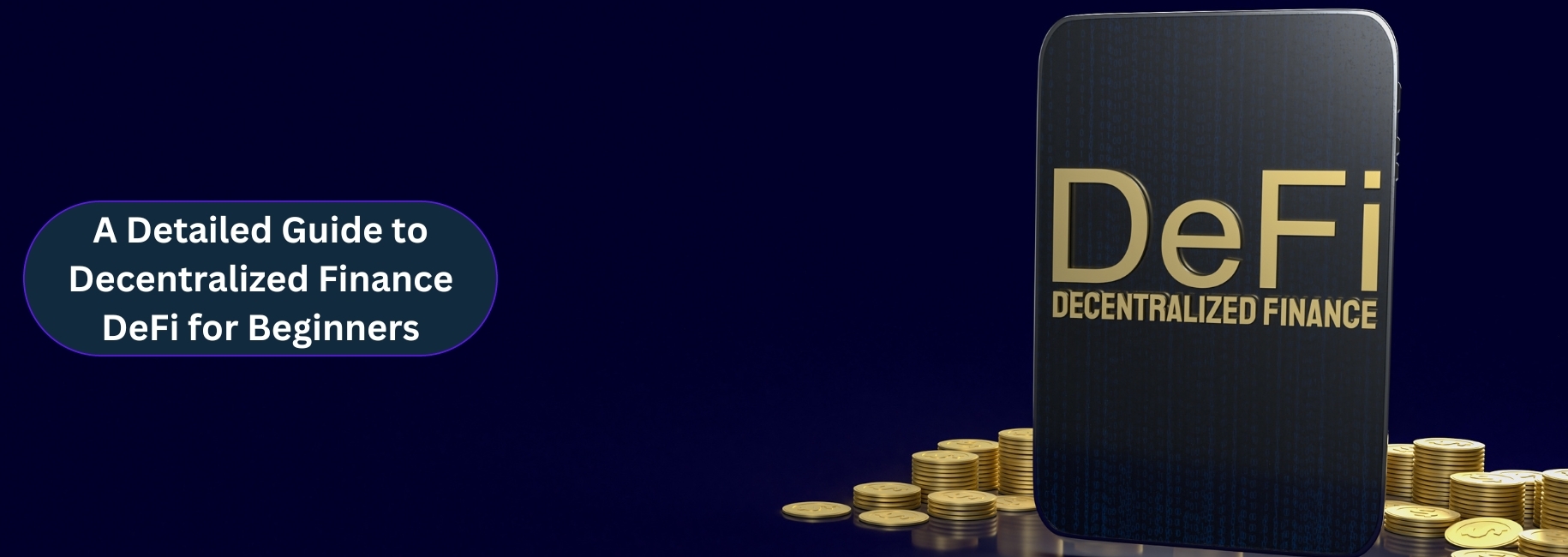
As the DeFi market continues to grow, regulators need to ensure the protection of investors and users. Smart contracts and decentralized platforms, although offering greater accessibility and transparency, also come with their fair share of risks. There is a need for regulations that address issues such as fraud, market manipulation, and security vulnerabilities.
Regulators could consider implementing mechanisms that enhance transparency and require greater disclosure from DeFi platforms. They could also establish guidelines for auditing smart contracts and protocols to identify and address potential vulnerabilities.
Furthermore, regulating decentralized exchanges and liquidity pools can help mitigate the risks associated with fraudulent activities or manipulation of the market.
3. Balancing Innovation and Stability
The decentralized landscape presents regulators with the challenge of striking a balance between fostering innovation and maintaining financial stability. Overregulation could stifle innovation and hinder the growth of the DeFi space, while underregulation could expose users to significant risks.
Regulators need to adopt a flexible and adaptable regulatory approach that allows for innovation while also identifying and addressing potential risks. This could involve partnering with industry participants and conducting ongoing assessments of the evolving DeFi space to ensure that regulatory measures remain effective.
In conclusion, the decentralized finance landscape requires regulators to adapt and evolve their regulatory frameworks. Collaboration across jurisdictions, protecting investors and users, and balancing innovation with stability are key considerations in navigating this transformative landscape.
What is decentralized finance?
Decentralized finance, also known as DeFi, refers to a type of financial system that operates on blockchain technology and eliminates the need for intermediaries such as banks or brokers. It aims to provide an open, transparent, and accessible financial ecosystem that is not controlled by any central authority.
How does decentralized finance impact the financial landscape?
Decentralized finance has the potential to disrupt the traditional financial landscape in several ways. It allows for peer-to-peer transactions without intermediaries, enabling faster and cheaper transactions. It also provides opportunities for financial inclusion, as anyone with an internet connection can access DeFi services. Additionally, DeFi opens up new investment avenues, such as decentralized lending and borrowing, which were previously only available to institutional investors.
What are the main advantages of decentralized finance?
Decentralized finance offers several advantages over traditional financial systems. Firstly, it promotes financial inclusivity by allowing anyone with an internet connection to participate in financial activities. Secondly, it ensures transparency and eliminates the need for intermediaries, reducing the risk of fraud and corruption. Additionally, DeFi provides users with more control and ownership over their assets, as they have direct access to their funds. Lastly, DeFi is open 24/7, unlike traditional financial institutions that have limited operating hours.
Are there any risks associated with decentralized finance?
While decentralized finance offers many benefits, it also comes with certain risks. One of the main concerns is the lack of regulation, which could lead to scams and fraudulent activities. Additionally, since DeFi operates on blockchain technology, it is susceptible to security vulnerabilities, such as hacks and smart contract bugs. Furthermore, the volatility of cryptocurrencies used in DeFi can result in significant financial losses for users. It is essential for individuals to conduct thorough research and exercise caution when participating in DeFi activities.
What are some examples of decentralized finance applications?
There are several examples of decentralized finance applications. One popular category is decentralized exchanges (DEX), which allow users to trade cryptocurrencies directly with each other without the need for intermediaries. Another example is decentralized lending platforms, where users can borrow and lend cryptocurrencies without going through traditional financial institutions. Other applications include decentralized stablecoins, decentralized insurance, and decentralized prediction markets.
Blur: NFT | Blur: NFT login | Blur: NFT connect | WalletConnect | Traders | What Is Blur Crypto
2022-2024 @ The game changing impact of decentralized finance on the financial landscape